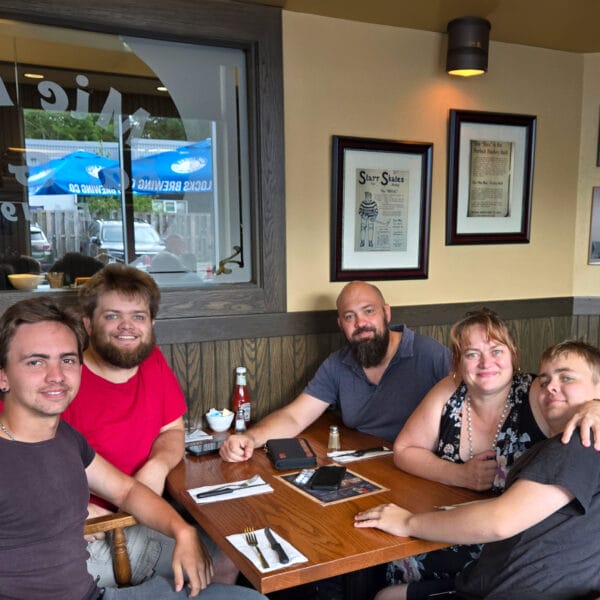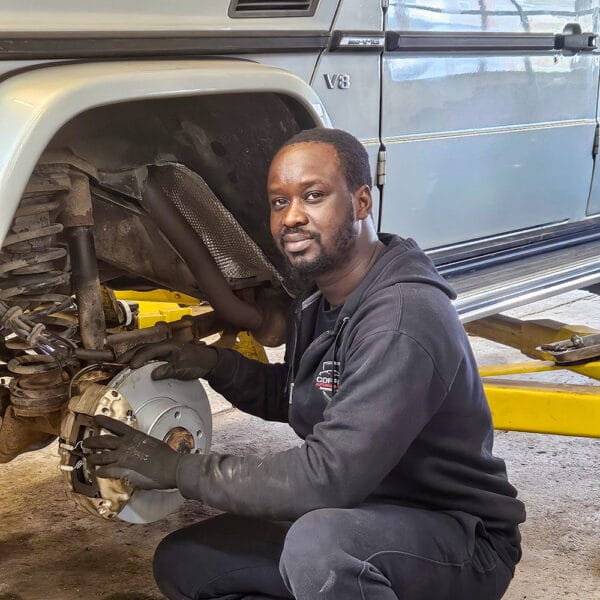Tanya Aujla: Knowledge and Confidence from The National Healthcare Language Program
An ISANS Impact Story
Tanya Aujla had years of education and experience in the medical field before immigrating to Canada, but the National Healthcare Language Program (NHLP) helped her in ways she didn’t know was possible.
“I come from a part of India where I grew up studying and talking in English. So I thought I would not benefit much from the program, However, while doing it, I realized that I needed it so much. It was an amazing program,” says Tanya.
The NHLP provides courses designed to help internationally educated healthcare professionals across Canada develop the communication competencies they need to succeed in their fields.
Throughout the course, Tanya says she gained a deeper understanding of different concepts like trauma-informed care, strengths-based approaches, and harm reduction. She knew of these concepts before the program, but through the NHLP, she learned how they could be applied to the field of medicine.
The NHLP also helped Tanya gain a newfound confidence.
“I feel like Carolyn [Carolyn Duvar, an ISANS staff member and one of the teachers involved in the NHLP] is one of the best teachers I’ve met; she is amazing. I remember when we went to do practices of the cases, I almost was in tears because of how much confidence I had gained because of the course. I learned how to communicate effectively. I also learned how to create an environment of safety and comfort for patients, an important aspect of the patient-centred approach.”
Carolyn remembers Tanya as a diligent learner who already spoke English excellently, but benefited from the practice, the exam communication skills, and the confidence the program instilled.
“Tanya was quiet at the beginning of the course, and by the end, she became more comfortable and started contributing more. Her confidence improved in class and in the role-plays as well,” says Carolyn. “She had great questions when she asked them. She also had very good reflections on her learning and the activities.”
In her experience, Tanya says, the key to success is a willingness to listen, take the course seriously, and actively learn.
“I just grew a lot. Every week, we would record our sessions or do role-plays and record it, which really helped. And Carolyn would really go in-depth into actually making corrections to what we were saying and pointing out what could be improved.”
One of Tanya’s biggest takeaways from the program was how she could apply it to her future work as a physician. While living in India, Tanya got her Bachelor in Medicine and Bachelor in Surgery (MBSS) in 2020. Working in the field of medicine, she did a year-long internship and then worked in an emergency department for three years. In 2023, Tanya immigrated to Canada and moved to the beautiful city of Halifax.
She will be doing The National Assessment Collaboration (NAC) Examination in September and the Medical Council of Canada Qualifying Examination I as well. She hopes to apply for residency next year, match, and become a practicing physician in the next five years.
If you can believe it, though, despite her medical education, experience, and career goals, Tanya didn’t think working in healthcare was for her at first.
“Initially, it did start with an expectation that I was supposed to be a doctor and I struggled with it,” she tells us. “But then, when I understood the concepts and started applying them, and I started seeing patients, that is when I realized that I could not have done anything else.”
Currently, Tanya works at HomeBridge Youth Society as a youth care-worker in Dartmouth, a job she finds just as gratifying.
At HomeBridge Youth Society, she works at The Reigh Allen Centre, a short-term emergency crisis and stabilization program for youth. Tanya works with youth ages 12 to 18 and says she and her team provide support, care, and mentorship when needed.
“It’s usually intense and highly emotional; there’s a lot going on. So, I use a lot of concepts from the NHLP at my job, one being the strength-based approach, which helps us, and helps the youth, to look at things from a positive point of view and realize their strengths rather than focusing on the weaknesses.” I learned a lot from my work at HomeBridge and I am excited to apply this to my practice as a physician in the future.”
Outside of her job at HomeBridge Youth Society, Tanya has volunteered as an English-language tutor with ISANS. Currently, she is volunteering as an art tutor with Nova Scotia Health Authority, where she goes in weekly and makes art with residents.
"I remember when we went to do practices of the cases, I almost was in tears because of how much confidence I had gained because of the course."
Share this:


